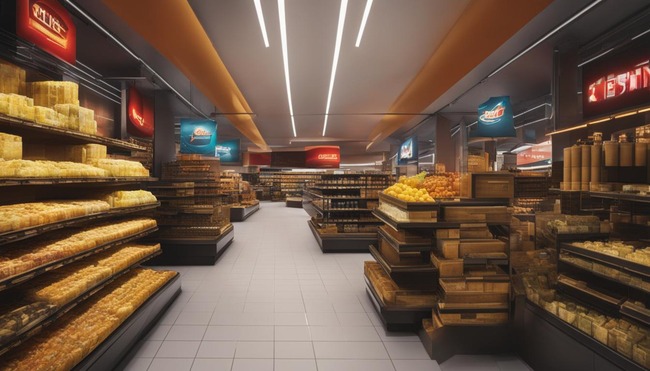The Fast-Moving Consumer Goods (FMCG) sector involves a complex system of sales that is crucial for the success of any business. Primary, secondary, and tertiary sales are the three levels of sales that occur in typical supply chains. Understanding these sales levels and their functions is essential for sales managers, sales representatives, and all stakeholders involved in the FMCG industry.

At the primary level, the manufacturing company or a national distributor sells products to top-level distributors. These distributors then move the products to lower-level distributors, who supply the retailers and finally the end-customer. The secondary level involves sales transactions from the distributor to the retailer. Tertiary sales are the final level of sales observed, where the retailer sells the product to the end-customer at the maximum retail price.
Primary sales contribute to the primary sale point and are crucial for the company’s sales performance. Secondary sales play a major role in boosting sales, while tertiary sales are more important for market share and brand value. Sales reps and field sales teams play a significant role in driving sales transactions at all three levels of the supply chain. Additionally, trade promotions and brand equity are essential for creating demand and generating revenue and the profits of the company.
In this article, we will explore the concept of primary, secondary, and tertiary sales in the FMCG industry in-depth. We will delve into the sales processes, the role of sales managers, sales reps, and field sales teams, and the impact of trade promotions and brand equity on sales performance. Furthermore, we will examine the significance of these sales levels for every business in the FMCG and Consumer Packaged Goods (CPG) sector.

Key Takeaways
- Primary, secondary, and tertiary sales are the three levels of sales that occur in typical FMCG supply chains.
- Primary sales contribute to the primary sale point and are crucial for the company’s sales performance.
- Secondary sales play a major role in boosting sales, while tertiary sales are more important for market share and brand value.
- Sales reps and field sales teams play a significant role in driving sales transactions at all three levels of the supply chain.
- The FMCG and CPG sector relies heavily on the sales process for generating revenue and profits.
Understanding Primary Sales
Primary sales refer to the first and primary level of sales in the supply chain. It is when the manufacturing company or a national distributor sells the product to the bottom level distributors or stockiest. Primary sales are crucial for the company’s sales as they contribute to the maximum revenue and profits. The primary sales process includes picking the material in huge quantity from the manufacturing unit and moving it to the distributor .
Let’s take an example of primary sales from HUL. When HUL manufactures products, it sells them to distributors who then sell it to retailers. The retailers then sell the product to the end consumer at Maximum Retail Price (MRP).
The Role of Primary Sales
Primary sales play a major role in the company’s sales performance. They help in building the brand equity of the company as it is the first point of contact between the company and the distributor. The primary sale point is where the distributor decides whether or not to purchase the product. Sales teams play a crucial role in driving primary sales as they are responsible for convincing the distributor to invest in the product. Primary sales also contribute to the market share and brand value of the company.
In conclusion, primary sales are the foundation of the sales processes in the FMCG and consumer packaged goods (CPG) industry. They set the tone for the entire supply chain and drive revenue and profits for the company.

Unveiling Secondary and Tertiary Sales
After primary sales, the next levels of the sales process are secondary and tertiary sales. Secondary sales refer to the sale of products from the distributor to the retailer. This level of sales does not happen until after the primary sales have taken place.
Secondary sales play a major role in the overall sales performance of a company. Sales include the revenue generated from secondary sales, and they are considered more important than primary sales for several reasons.
The role of sales representatives is crucial in driving secondary sales. They work closely with retailers to ensure that the products are readily available to customers. The final level of sales observed is the tertiary sale, which is the sale made from the retailer to the end customer.
While tertiary sales are also observed, secondary sales are more significant in the FMCG industry. The sales observed in a company include both primary and secondary sales.
It is important to note that secondary sales happen in the retail sector. When a distributor sells products to a retailer, it is considered a secondary sale. The product then reaches the end customer through the retailer, and this is where tertiary sales happen.
In summary, secondary sales are a crucial part of the sales process, and their importance cannot be overstated. Sales reps play a pivotal role in driving secondary sales, and they are crucial in ensuring that a company’s products reach the end customer. Tertiary sales are the final level of sales observed, and they happen when the retailer sells the product to the end customer.
